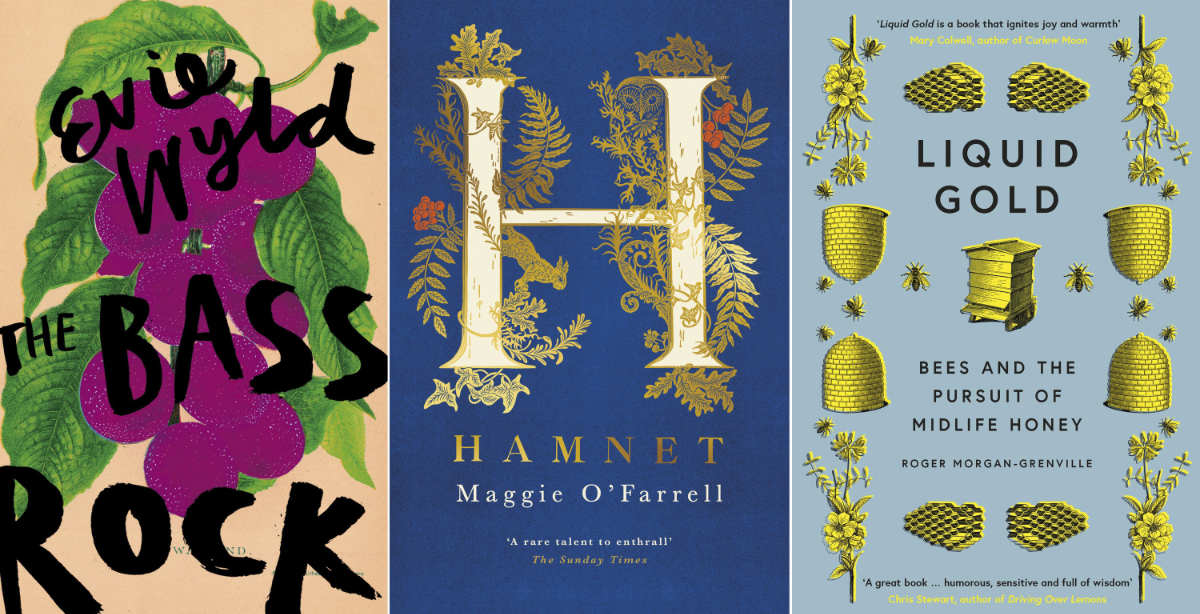Whether you’re self-isolating, or bored of watching Netflix, a good book provides a great escape.
Fiction
1. Hamnet by Maggie O’Farrell (Tinder Press, £20)
Behold! My copy of #Hamnet by #MaggieOFarrell @TinderPress @headlinepg is here 💙💛💙 What a stunning design 👏🏻👏🏻 #lingerlongerwithbooks pic.twitter.com/BMy1GBhzj7
— Catherine Morrow (@catherinemorrow) March 31, 2020
Maggie O’Farrell returns with an almost unbearably moving historical portrait of Hamnet, William Shakespeare’s son. When the boy and his twin sister, Judith, fall sick, their whole fractured family is tugged into a terrible, heart-rending vigil – one that’s particularly timely and wrenching as we deal with our own pandemic. However, even more than that, the book is a portrait of a difficult marriage and a wife – the Bard is not treated like a literary giant, but a man who is flawed and absent.
O’Farrell gives Anne Hathaway, Hamnet’s mother, Shakespeare’s wife – who has been a somewhat mysterious figure in history – a shape and form that is both touching and provoking. She outlines the struggles an independent woman can face (especially when said woman knows her way around herbs and healing) in a world where men’s ambition rules, and the demands of family life restrict your freedom. Tender, nuanced and a painfully accurate portrayal of grief, this might just be O’Farrell’s best work to date.
2. The F*ck-It List by John Niven (William Heinemann, £16.99)
We can’t wait to get stuck into @estellecostanza‘s new novel, The F*ck-it List, out now.
Part political satire, part compulsive thriller, this is John Niven at his coruscating best. Get your copy here: https://t.co/OWpVE2IHvR pic.twitter.com/gI2MzTvNc6
— Penguin Books UK (@PenguinUKBooks) March 28, 2020
If you are looking for an antidote to the current gloom and despair being felt around the world, this may not be the book for you. John Niven’s latest acerbic novel offers a short, sharp dose of misery and hopelessness – a glimpse into a near-future America that will shock to the core. Niven – acclaimed author of Music From Big Pink and Kill Your Friends – has created an America that has been warped by two terms of Trump as President, with Donald’s daughter Ivanka now in her first term.
It is a US where the Mexico border wall was just the start of xenophobic immigration policies, where there is no gun control and abortion rights have been axed. The story centres on Frank Brill, a retired local newspaper editor, who is given a terminal diagnosis. Instead of the customary bucket list of things to do before he dies, Frank compiles a ‘f*ck-it list’ and on it are the names of all the people he holds responsible for tragic events in his life. It is a shocking book on so many levels, but most of all because it is scarily easy to imagine some of it playing out in reality.
3. The Bass Rock by Evie Wyld (Jonathan Cape, £16.99)
Evie Wyld’s third book tracking three different perspectives from history, all linked by wild Scottish coastal location, Bass Rock. The first is a young girl accused of being a witch in the 1700s, the second is post-WWII where a new wife, Ruth, settles into a rambling house with her husband and adopted children, and in the present day Viv sorts through Ruth’s possessions.
The stories share vague feminist themes and a sense of psychological dread, but the problem with three perspectives is you enjoy some more than others. Wyld weaves characters well and you empathise with both Ruth and Viv, but ultimately they don’t meld enough at the end to feel satisfying.
Non-fiction
4. Liquid Gold by Roger Morgan-Grenville (Icon Books, £12.99)
Check out these beautiful proofs for Liquid Gold: Bees and the Pursuit of Midlife Honey by Roger Morgan-Grenville, an uplifting memoir all about beekeeping, the honeybee, and the joy of learning something new at any age 🐝 Coming in March 2020 … (1/3) pic.twitter.com/8L4f1FzHFH
— Icon Books (@iconbooks) September 4, 2019
Of all hobbies to adopt on a whim, keeping 50,000 temperamental insects in your garden and stealing their winter food stores to eat yourself is not the most accessible to amateurs. Nevertheless, in 2016 Roger Morgan-Grenville and his friend – nay, first-time acquaintance – Duncan decided to become beekeepers and this book follows their bumbling through and swift abandonment of a £250 budget.
Morgan-Grenville clearly has eclectic interests. After army service during which he retraced Shackleton’s trek across South Georgia, he imported kitchenware and fundraised for Help for Heroes. His previous books have sought humour and self-contemplation in another quintessential rural pastime: cricket. The reader will learn plenty about bees and beekeeping from this book, although it is about as far from a manual as possible. Liquid Gold is a well observed delve into the hobbyist’s desire to find what is important in life, no matter their age or preparedness.
Children’s book of the week
5. Malo and the Merry-Go-Round written and illustrated by Maria Dek (Princeton Architectural Press, £12.99)
This colourfully illustrated tale for young children follows the quirky adventure of Malo and his best friend Poto. An unconventional story, the book begins with Poto making pickles on his porch and Malo not helping him, despite promising to do so. Encouragingly Poto tells Malo a new merry-go-round has appeared near their home and they could visit after they are finished, but Malo simply decides to head off and find it, leaving poor Poto to muster the brine-covered cucumbers alone.
If you think this sounds like a strange concept for a book, you are absolutely correct. Furthermore, Polish writer Maria Dek’s words, translated to English for this edition, can at times lack nuance. However, combined with her wonderfully vibrant and unique illustrations this child-like cocktail of the unusual will undoubtedly keep children engaged and make them laugh. In short, this is one the kids will absolutely adore, but which may leave one or two adults scratching their heads.
5 theatres and drama sites streaming shows straight to your home































































